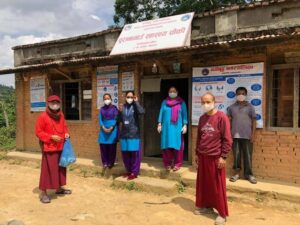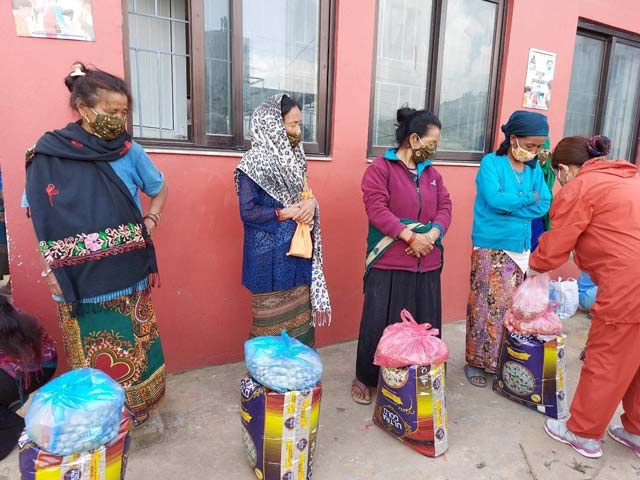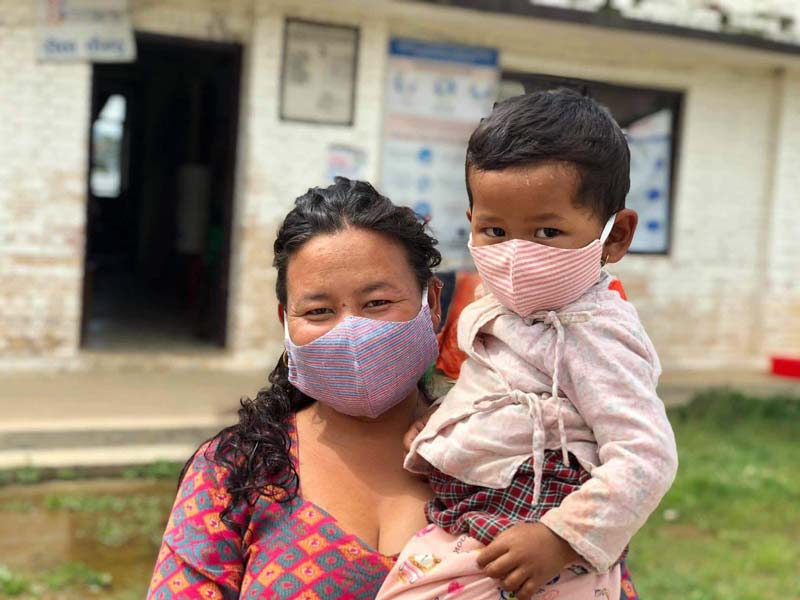When we founded Elevate Nepal in 2015, we couldn’t have predicted a terrible pandemic would sweep through all seven continents, taking millions of lives and altering our organization’s trajectory. However, Elevate Nepal was built with intrinsic adaptability, able to swiftly respond to crises as they arise through the thoughtful and effective allocation of resources, as well as a close collaboration with communities in Nepal.
We are immensely proud of our on-ground partners and volunteers who have distributed food packages and Personal Protective Equipment (PPE) to thousands of people across the country, and a huge “thanks” to the generous donors and sponsors who make our continued work possible. Also, we want to express our sincere gratitude for countless health care professionals and essential workers in Nepal and across the globe.
The State of the Pandemic in Nepal
As of January 2021, according to data from John Hopkins University, Nepal had witnessed 271 thousand COVID-19 cases, along with 2,000 deaths. Bagmati Province, which contains the nation’s capital city Kathmandu, was hardest hit, seeing more than half of the country’s total number of cases. In addition to the devastating loss of life, the pandemic sent economies around the globe into a sharp tailspin, forcing millions into poverty and food insecurity. Nepal saw its biggest economic sector, tourism, come to a screeching halt with strict border closures. Moreover, the World Bank reports, “Informal businesses make up around 50 percent of enterprises in Nepal and are the main source of income for most of the labor force … Most informal firms operate with limited savings, and owners may face the difficult choice of staying home and facing starvation during the lockdown or running their business and risking infection. These scenarios accentuate financial difficulties as well as the spread of COVID-19.”
Additionally, a study in the Journal of Global Health found, “Nepal continues to be vulnerable to extreme poverty, severe malnutrition and infections. The country is yet to recover from the adverse impact of the devastating aftermath of the 2015 earthquakes. The current lockdown has already exacerbated the health risks and health care resources, and are likely to continue beyond the COVID-19 pandemic.”
Although some reports show a decline in COVID-19 cases across the country, an individual test costs around $25 – $30. This may prevent many people who are ill from accessing an accurate test and skewing the nation’s numbers, especially as many Nepalese people face severe poverty — buying food for one’s family, in many eyes, takes precedent over a COVID-19 test.

Our Response: Nutritional Support, PPE Distribution & Public Health Education
We quickly shifted our focus as soon as COVID-19 began to spread in Nepal and developed an Emergency Pandemic Response plan . Despite not being able to enter the country themselves, Anthony Mancini and Dan Maurer, Elevate Nepal’s founders, have developed a steadfast relationship with a network of on-ground community leaders, workers and volunteers. This relationship provided a crucial foundation for their efforts throughout the pandemic.
- Nutritional Support – Starvation emerged as a clear and urgent issue in Nepal during the pandemic. We comprised food packages containing 30-day rations with essentials such as rice, lentils, cooking oil, salt and soap. Through partnerships with the Steps Foundation, Mountain People Nepal and other volunteers, we provided packages to nearly 5,000 people, and plan on distributing to 3,000 more in early 2021.

- PPE Distribution – PPE, including masks, are one of the most reliable safeguards against the transmission of COVID-19. We’ve partnered with a local women’s group, Kokroma, that was making masks and we worked with Wangchuk Rapten Lama, a Buddhist monk and health professional, to distribute full-body suits to frontline medical workers in the Kavre District.We are now focusing on distributing masks to schoolchildren. Masks are especially important as schools are back in session with crowded classrooms. Our In-Country Coordinator, Resham Bal, has led these efforts, having distributed 4,000 masks at schools in the Terai District.
-
Public Health Education – Public health education is a critical aspect to preventing the spread of the virus. We quickly realized that we could distribute PPE, but it didn’t mean it was going to be correctly used, or even worn at all. As we distributed masks across rural regions in Nepal, we realized many didn’t know what COVID-19 was or the serious threat it posed to health.
We therefore launched a comprehensive education campaign, providing informational posters to schools , including one on how to best prevent the virus’ transmission and another about the most common COVID-19 symptoms. Resham is pivotal in educating school officials on the importance of smaller class sizes, social distancing and proper ventilation.
Although the vaccine is now available to Nepal’s healthcare workers, the impacts of the pandemic continue to reverberate. All proceeds to Elevate Nepal will continue to be used exclusively for pandemic response. Donate today to help us continue to combat COVID-19 in Nepal.


